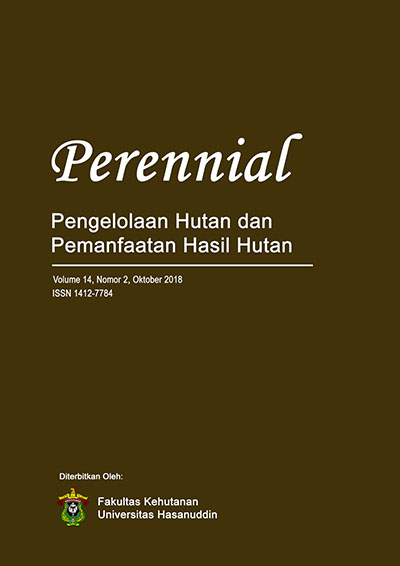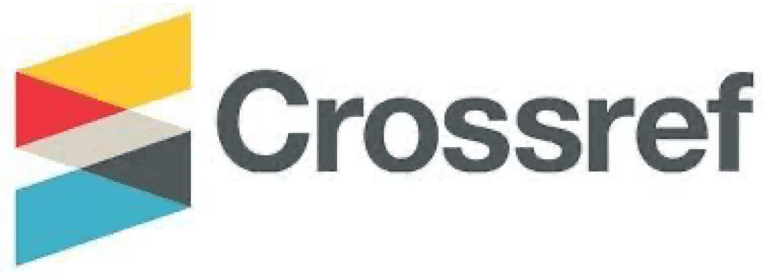Persepsi Masyarakat Terhadap Rencana Pembangunan Ekowisata Karst Di Desa Sambueja, Kecamatan Simbang, Kabupaten Maros
DOI:
https://doi.org/10.24259/perennial.v14i2.5648Abstract
Sambueja Village is one of the villages in Maros Regency which has a karst area that must be protected in total because its function as a water storage and has a variety of ecotourism potential that can be developed and can support the development of ecotourism activities. The role and participation of the community in ecotourism is an important thing that distinguishes it from other forms of tourism. Because perception is a fundamental element that needs to be known before planning activities that will involve the local community. This study aims to determine the public perception of the karst ecotourism development plan in Sambueja Village, Simbang District, Maros Regency. The results of the study can be seen that the perception of the people of Sambueja Village is a positive perception of the karst ecotourism development plan. The majority of the community stated that they did not object if the village of Sambueja was built and developed as an ecotourism village, but it requires that its development and development must refer to the concept of tourism which takes into account the preservation of environmental functions, ecological potential and maintaining cultural values in the local community
Key words: Sosial Perception; Karst Ecotourism
References
Achmad, A. (2017). Membangun Ekowisata Alam Liar. Makassar: Pusat Kajian Media dan Sumber Belajar LKPP Universitas Hasanuddin.
Arifin. (2011). Evaluasi Pembelajaran. Bandung: PT. Remaja Rosdakarya.
Dinas Pariwisata Provinsi Jawa Tengah. (2002). Rencana Induk Pengembangan Pariwisata Jawa Tengah. Semarang: Dinas Pariwisata Provinsi Jawa Tengah.
Departemen Kebudayaan dan Pariwisata Indonesia. (2009). Prinsip dan Kriteria Ekowisata Berbasis Masyarakat. Jakarta: Departemen Kebudayaan dan Pariwisata Indonesia RI.
Gunawan. (2008). Agenda 21 Sektoral : Agenda Pariwisata untuk Pengembangan KualaitasHidup Secara Berkelanjutan. Jakarta: UNDP – Kantor Kementrian Lingkungan Hidup.
Hakim, L. (2004). Dasar-Dasar Ekowisata. Malang: Banyumedia Publishing.
Honey, M. (1999). Ecoturism and Sustainable Development : How Owns Paradise. Washington DC: Island Press.
Josephine. (2010). Kajian Pengembangan Ekowisata di Kawasan Taman Wisata Alam Sibolangit. Medan: Universitas Sumatera Utara..
Kurniawan, J. dan Burhanuddin. (2004). Pengembangan Ekowisata di Kawasan Ekosistem Leuser. Medan: Program Pengembangan Leuser.
Kementrian Lingkungan Hidup dan Kehutanan. (2016, 30 Agustus). Setiap Tahun Hutan Indonesia Hilang. Kompas.com, Diakses pada 24 Oktober 2016 dari https://regional.kompas.com/2016/ 08/30/15362721/setiap.tahun.hutan.indonesia.hilang.684000.hektar.
Moleong, L. (1997). Metodologi Penelitian Kualitatif. Bandung: PT Remaja Rosdakarya.
Nursalam, dan Pariani. (2001). Pendekatan Praktis Metodologi Riset Keperawatan. Jakarta: Salemba Medika.
Supriatna, J. (2008). Melestarikan Alam Indonesia. Jakarta: Yayasan Obor Indonesia.
Soekadijo. (2000). Anatomi Pariwista. Jakarta: Gramedia.
Yoeti, O. A. (2000). Ekowisata Pariwisata Berwawasan Lingkungan. Jakarta: PT. Pertja.
Yoeti, O. A. (2008). Perencanaan dan Pengembangan Pariwisata. Jakarta: PT. Pradnya Pramita.








